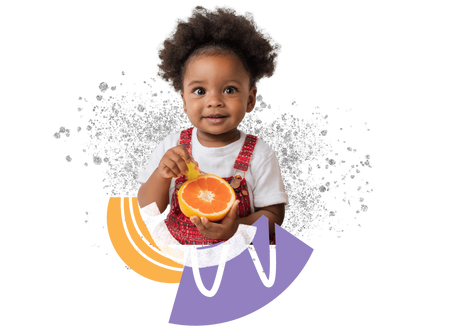Nutrition: The Cornerstone of Your Child's Health
Nurture optimal growth with expert nutrition advice. Discover essential tips for feeding babies, toddlers, and children from solids to picky eaters.

Why Nutrition Matters for Toddlers
Toddlers are in a period of rapid growth and development. What they eat directly impacts their physical and cognitive abilities. Proper nutrition is essential for:
- Brain development: Nutrients like omega-3 fatty acids, iron, and zinc are crucial for a toddler's growing brain.
- Strong bones and teeth: Calcium and vitamin D are vital for building strong bones and teeth.
- Healthy immune system: A balanced diet helps protect your toddler from illnesses.
- Energy levels: Proper nutrition provides the energy needed for play and exploration.
The Role of Toddler Formula
While breast milk is the ideal food for infants, toddler formula can be a valuable nutritional supplement, especially for those who cannot or choose not to breastfeed. A high-quality formula, like a plant-based buckwheat flour option, can provide essential nutrients like protein, iron, calcium, and vitamins.
- Organic ingredients: Choosing an organic formula ensures your toddler is consuming fewer pesticides and other harmful chemicals.
- Plant-based options: These can be a suitable alternative for families with dietary restrictions or preferences, or for toddlers with cow's milk allergies.
Important Note: Always consult with your pediatrician to determine the best feeding plan for your child, including the use of toddler formula.
Building Blocks of a Healthy Toddler Diet
A toddler's diet should be a colorful mix of foods from all food groups.
| 🥦 Fruits and vegetables: | Packed with vitamins, minerals, and fiber. Aim for a variety of colors and textures. |
| 🌾 Whole grains: | Provide energy and fiber. Opt for whole-grain bread, pasta, and brown rice. |
| 🫘 Lean protein: | Essential for muscle growth and repair. Include chicken, fish, beans, and tofu. |
| 🥛 Dairy or dairy alternatives: | Provide calcium for strong bones. Offer milk, yogurt, cheese, or plant-based alternatives. |
| 🥑 Healthy fats: | Support brain development. Find them in avocados, nuts, seeds, and olive oil. |
Remember: Every toddler is different. Consult with your pediatrician for personalized dietary advice.
Tips for Healthy Eating
- Be a good role model: Children often imitate their parents' eating habits.
- Offer a variety of foods: Exposure to different tastes and textures encourages healthy eating.
- Make mealtimes enjoyable: Create a positive dining experience.
- Limit sugary drinks and processed foods: These can displace healthier options.
- Listen to your toddler's cues: Respect their appetite and avoid forcing food.

Find Your Child's Perfect Product
Try our quick product finder quiz, to find the best plant-based nutrition product to give your little one the best start in life!





